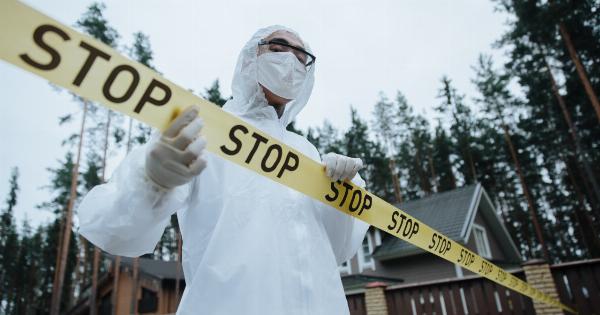Pediatric inflammatory bowel disease (PIBD) is a chronic inflammatory condition that affects the gastrointestinal tract of children under the age of 18.
This condition includes both Crohn’s disease and ulcerative colitis and can cause a range of symptoms including chronic diarrhea, abdominal pain, weight loss, and rectal bleeding.
Although the exact cause of PIBD is unknown, it is believed to be an autoimmune disorder in which the body’s own immune system mistakenly attacks the intestinal lining.
This leads to chronic inflammation which can cause complications and damage to the digestive system.
Complicated Cases of Pediatric Inflammatory Bowel Disease
While PIBD can be a challenging condition to manage, some cases can be particularly complicated. Here are 10 examples of complicated cases of PIBD:.
1. Severe Colitis
Severe colitis is a type of ulcerative colitis that affects the entire colon and causes severe inflammation. Children with severe colitis may experience bloody diarrhea, abdominal pain, and dehydration.
Treatment for severe colitis may include hospitalization, intravenous fluids, and medications to reduce inflammation.
2. Perianal Disease
Perianal disease is a type of Crohn’s disease that affects the skin around the anus. This condition can cause painful abscesses and fistulas that may require surgery to remove.
3. Growth Failure
Children with PIBD may experience growth failure due to the chronic inflammation in their digestive system. This can lead to delayed puberty, stunted growth, and other developmental problems.
4. Malnutrition
PIBD can interfere with a child’s ability to absorb nutrients from their food. This can lead to malnutrition, which can cause developmental and physical problems if left untreated.
5. Stricturing Disease
Stricturing disease is a type of Crohn’s disease that causes narrowing of the intestinal tract. This can lead to blockages and bowel obstructions that require surgery to remove.
6. Fistulizing Disease
Fistulizing disease is a type of Crohn’s disease that causes abnormal connections between different parts of the digestive system or between the digestive system and other organs.
This can lead to abscesses, infections, and other complications that may require surgery.
7. Primary Sclerosing Cholangitis
Primary sclerosing cholangitis (PSC) is a rare complication of PIBD that affects the liver. This condition causes inflammation of the bile ducts, which can lead to scarring, liver damage, and eventually liver failure.
8. Autoimmune Hepatitis
Autoimmune hepatitis is another rare complication of PIBD that affects the liver. This condition causes the body’s immune system to attack the liver, leading to inflammation and liver damage.
9. Toxic Megacolon
Toxic megacolon is a life-threatening complication of severe colitis that can cause the colon to become greatly distended and paralyzed. Symptoms of toxic megacolon include abdominal pain, fever, dehydration, and rapid heartbeat.
Treatment for toxic megacolon may include surgery to remove the affected portion of the colon.
10. Surgery
In some cases, surgery may be necessary to treat complications of PIBD or to manage severe symptoms that are not responding to other treatments.
Surgery for PIBD may involve removing portions of the digestive system, creating a colostomy or ileostomy, or repairing fistulas.
Conclusion
Pediatric inflammatory bowel disease can be a challenging condition to manage, especially in cases where complications arise.
However, with careful monitoring and treatment, many children with PIBD are able to manage their symptoms and lead active, healthy lives.



























